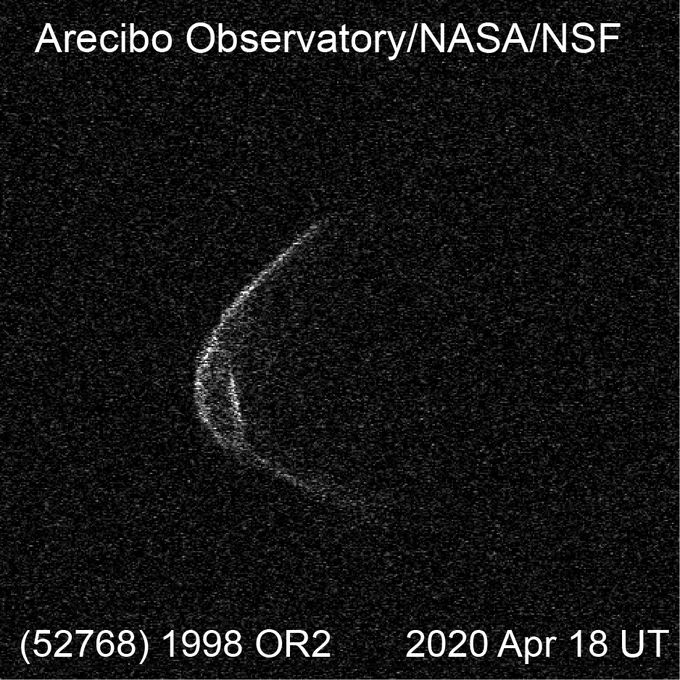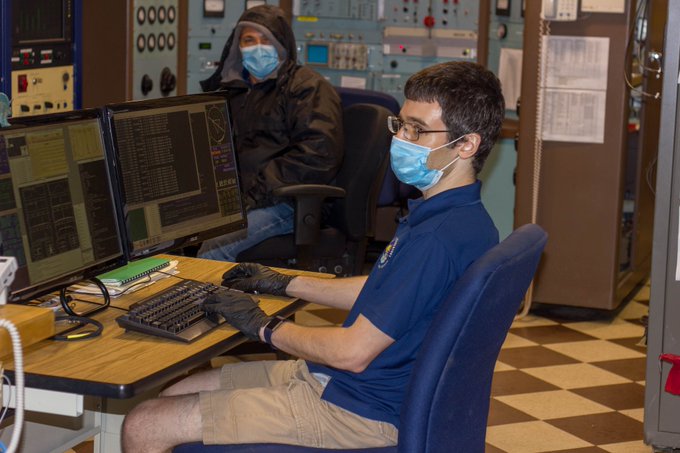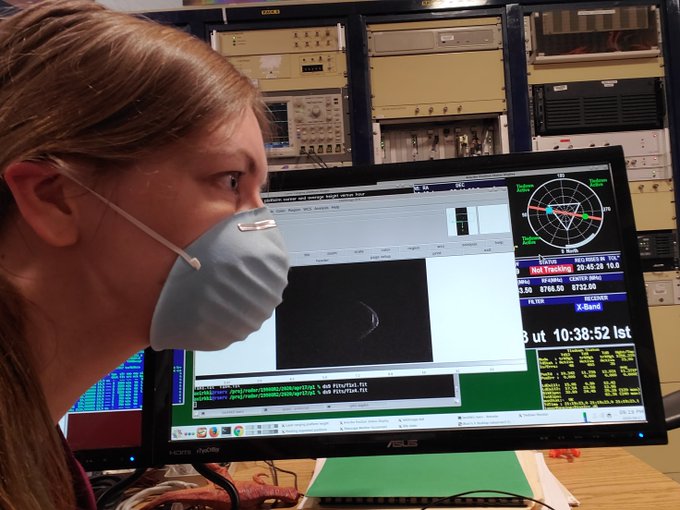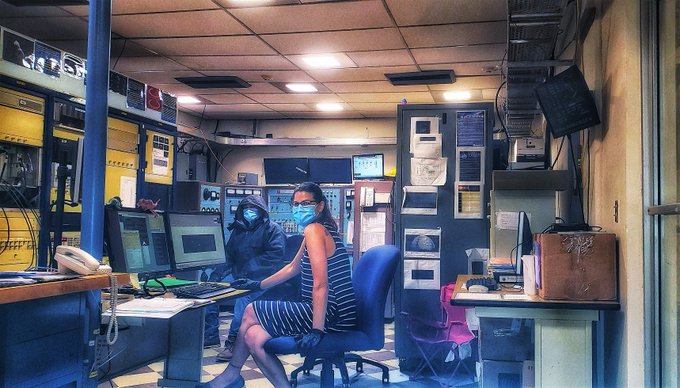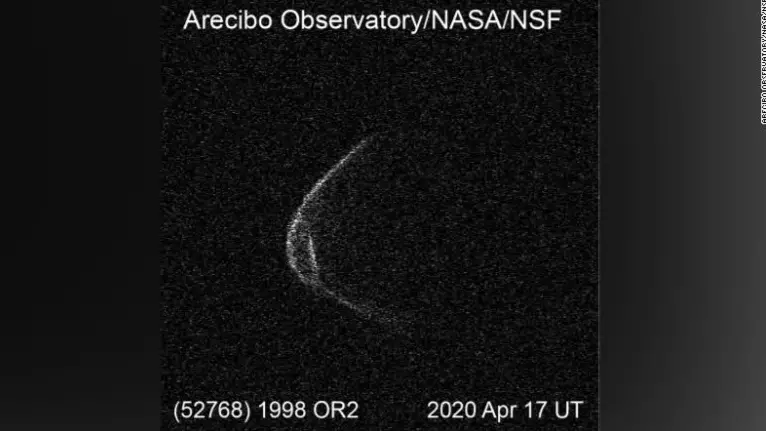
An asteroid which is around 1.2 miles wide will pass Earth next week and it will apparently look like it's wearing a face mask.
The Arecibo Observatory in Puerto Rico captured a radar image of the space rock which they estimate will be flying by our planet on 29 April.
The asteroid - which is called asteroid 1998 OR2 - will be moving at 19,461 miles per hour and will pass within 3.9 million miles (or 6.3 million kilometres) of Earth. Basically, you don't need to worry about any possible collisions.
Advert
Back in '98 when the asteroid was discovered, NASA explained that if it did impact Earth it is 'large enough to cause global effects'.
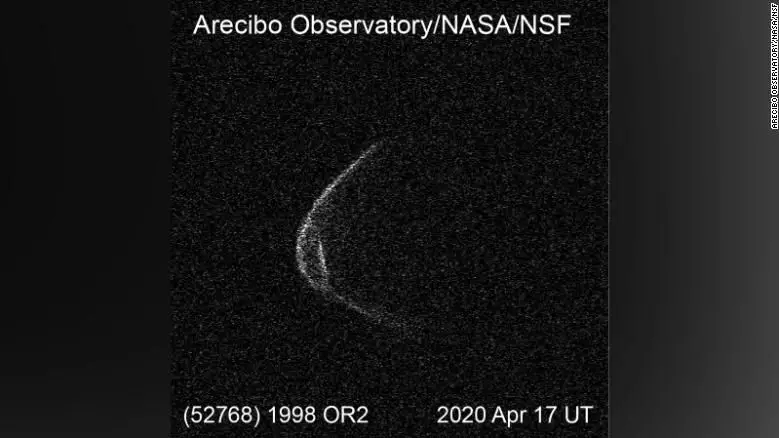
Speaking of 1998 OR2's upcoming visit, Anne Virkki, head of planetary radar at Arecibo Observatory said: "The small-scale topographic features such as hills and ridges on one end of asteroid 1998 OR2 are fascinating scientifically.
"But since we are all thinking about Covid-19, these features make it look like 1998 OR2 remembered to wear a mask."
Advert
The asteroid is expected to pass on Wednesday (29 April) at 5:56am ET - which means it'll be 9:56am GMT.
The researchers at the observatory aren't the only ones keeping an eye on 1998 OR2. For example, Italian astrophysicist Gianluca Masi, who runs the online Virtual Telescope Project, has been tracking the asteroid as well.
On 28 April Masi will host a live webcast about 1998 OR2 that will feature telescope views of the object.
Advert
Even though 1998 OR2 isn't going to pose a threat, it will still be closely monitored so that experts can determine it's path in the future.
Flaviane Venditti, a research scientist at the observatory told 7News: "The radar measurements allow us to know more precisely where the asteroid will be in the future, including its future close approaches to Earth.
"In 2079, asteroid 1998 OR2 will pass Earth about 3.5 times closer than it will this year, so it is important to know its orbit precisely."
Featured Image Credit: Arecibo Observatory/NASATopics: Interesting, Coronavirus, Community, space, Asteroid
